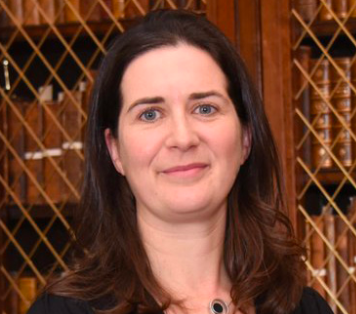The Sláintecare consultant contract officially arrived last month to significant negative reaction from doctors, raising doubts about whether it will address the recruitment and retention crisis. David Lynch reports
After more than a year of stop-start negotiations, the new ‘public-only’ Sláintecare contract for consultants became a reality last month.
As may have been expected, reactions to the new arrival have been varied.
Minister for Health Stephen Donnelly was enthusiastic. He told the Dáil on 22 March the contract was “important…and attractive”. Minister Donnelly emphasised that the “base salary at the top of the scale will go to about €261,000 and with on-call allowances, the amounts of which have been increased as well, many consultants in our system will be earning in excess of €300,000 per year for a 37-hour week”.
He acknowledged that many consultants “do a lot more than that unpaid”, but concluded it was “a very attractive contract for doctors”. The Minister indicated it was the Government’s aim that the coming years will witness NCHDs and Irish doctors living abroad voting with their feet and signing up to the new contract.
“Our hope is that the doctors we are training here as… NCHDs will take these posts when they qualify as consultants and that a lot of consultants around the world – Irish-trained consultants who [are] living all over the world – will begin to come home and take up this contract,” he told the Dáil.
The Minister added that the new contract “also works for patients”.

Prof Robert Landers
Reaction among consultants and NCHDs has not been as uniformly positive.
Speaking to the Medical Independent (MI) at the National Health Summit in Croke Park in February, IHCA President Prof Robert Landers said the new contract will lead to a “gradual change, not a big bang” in the health service. Speaking to Summit attendees about the possible uptake, he said: “We [IHCA] are unsure what that will be. I’d like to be in a position to say it will be very high; I’m not so sure. It will suit some consultants, but it won’t suit others.”
Prof Landers was speaking prior to the publication last month of an IHCA survey. This showed nearly three-quarters of its members were “not confident” the new contract would address the consultant recruitment and retention crisis.
Chair of the IMO consultant committee Prof Matthew Sadlier raised similar concerns.
“While we accept there was progress on some issues, we were very clear at the negotiations that a lack of safeguards around rostering, location, and sufficient number of medical and other staff would make the terms unworkable in practice and create huge uncertainty and inequity,” according to Prof Sadlier.
He made these comments as the IMO released the results of a ballot in which consultant and NCHD members rejected the new contract. Some 57 per cent of current contract holders indicated they would not change contract and 64 per cent of NCHDs said they would not take up the contract.
However, while the IHCA and IMO have reacted coolly, one aspect they seem to agree with the Minister on is that the contract is here to stay, at least for the foreseeable future.
The IMO said it will support individual members on whatever decision they take in respect of the new contract. However, the Organisation called on the Government to reengage on key points around hours of work, rostering arrangements, location, and work. The IHCA said the “final decision” on taking up the contract is now a matter for individual consultants.
“As we have done throughout, the Association will continue to support our members at home and abroad in this regard,” according to a statement.
The Sláintecare consultant contract officially went live on Wednesday, 8 March. “All new consultants appointed to the health service will be offered a public-only contract,” a HSE spokesperson told MI. “In addition, existing consultant post-holders may transition to the new contract.”
The HSE did not provide any detailed timeframe for when all consultants would be contacted about the new contract. A spokesperson said that “all existing consultants will be contacted as soon as possible”.
The Department of Health told MI the “key terms and clauses” of the new contract “will support and enable the implementation of Sláintecare”.
However, the negative reaction from doctors is likely to hamper implementation.
Continuing concerns
The IHCA has contrasted the reaction to the previous 2008 contract, which got the endorsement of a clear majority of the consultant community, with the far colder response the new contract
has received.
The IHCA believes much of the contrast between now and 2008 can be explained by what has happened in the interim, principally the introduction in 2012 of a 30 per cent pay cut for new-entrant hospital consultants. However, the IHCA also pointed to other “key fundamentals” in the day-to-day working experience of hospital consultants such as long patient waiting lists, IT system challenges, lack of theatre time, and sub-par infrastructure.
The Association still believes the recent contract negotiations represented real opportunities to realise improvements in the health service. According to the IHCA, it recognises that the new contract includes commitments to improvement in the areas of ongoing professional development and education. It is also thought that some consultants will, having considered matters in full, decide that signing this contract makes sense for them.
However, this newspaper understands that the Association considers that the contract could and should have gone further, specifically in areas such as structured sabbaticals, family-friendly hours, team, and equipment supports. The IHCA has repeatedly pointed out that Ireland still has 40 per cent fewer consultants than the EU average, 900 permanent consultant posts are unfilled, and almost 900,000 people are waiting to see a consultant. Ultimately, the Association believes that addressing these realities will be the acid test of this contract.
For its part the IMO is on the eve of its annual meeting in Killarney, Co Kerry and the views of the Organisation are carried elsewhere in this issue (see preview, p12). The future impact of the new consultant contract is sure to figure heavily in debates and discussions during the AGM, which is being held from 13 to 15 April.
This new contract could help to reduce the inequity, but only if there is sufficient take-up
by existing consultants
The long-term ramifications of the contract on the recruitment and retention challenge will take time to become clear.
Emigration
However, the continued attraction of overseas destinations for doctors remains a serious part of the retention difficulties facing the HSE.
Late last year, a number of Irish doctors on social media commented on the prominent advertisement campaign run by the Department of Health in Victoria, Australia, to encourage Irish doctors and other healthcare workers to travel there for work. For instance, large billboards were placed across Dublin, with some appearing near major hospitals such as in Phibsborough, which is close to the Mater Misericordiae University Hospital.
These types of campaigns have continued this year. Last month Dr Niamh Humphries (PhD), Senior Lecturer at the RCSI Graduate School of Healthcare Management, tweeted a photo of a new bus stop campaign by the New Zealand health service. “This New Zealand campaign to recruit health workers is
coming to a bus stop near you soon. Ireland urgently needs to up its game on health worker retention #DrRetention,” she tweeted.
Dr Humphries told MI she did not know “how successful” these types of campaigns were.
“However, I do think they remind us that the Irish health system needs to get better at retention and needs to start improving working conditions here,” she said.
“In looking to attract and retain health workers to work in the Irish health system we are competing with countries like Australia and New Zealand, which offer better working conditions and better work/life balance than currently on offer in Ireland,” Dr Humphries said.

Dr Niamh Humphries (PhD)
Dr Humphries, who has also worked as part of the Hospital Doctor Retention and Motivation project, added Ireland “should be looking to learn from their experience so that we can offer similar working conditions in the Irish context. This would improve retention and return.”
“So although health workers may still emigrate, they will be more likely to return if we began to offer similar working conditions here. Especially in relation to working hours and work/life balance.”
The workforce challenge facing the Irish health service has been the focus of much academic research. ‘Doctor Retention: A Cross-sectional Study of How Ireland Has Been Losing the Battle’ was published in the International Journal of Health Policy and Management in 2020.
The study measured Irish NCHD “migration intentions, the reasons they leave, and likelihood of them returning”. The aim of the study was to identify the characteristics and patterns of doctors who planned to emigrate to inform targeted measures to retain these doctors.
One of the authors of the 2020 paper, Prof Ruairi Brugha, Emeritus Professor of Public Health and Epidemiology, School of Population Health, RCSI, noted that consultants were not the direct target of the authors, who interviewed and surveyed NCHDs and trainees.
From that research it was clear that “consultants’ ‘working arrangements’, or rather conditions, were seen as a deterrent to taking up consultant posts in Ireland”, Prof Brugha told MI. He added “there was plenty of published evidence, including from the Medical Council surveys, that burnout was being experienced by consultants at levels close to that experienced by NCHDs”.
“And, as emerged in a three-hour forum I ran in November 2018, many factors made consultant positions in Ireland less attractive than in some countries such as Australia, including: Fewer trainees, lengthy appointment processes, and hospital configuration.”
On the new consultant contract, Prof Brugha said the previous situation since 2012 where ‘new-entrants’ entered the system “with salary entry points at 30 per cent below the old contract was a major inequity”.
“This new contract could help to reduce the inequity, but only if there is sufficient take-up by existing consultants,” he argued.
“While the new contract has merit, including the €12,000 for CPD and encouragement to do research, its biggest weakness is that it doesn’t address the wider workforce issues. And it is unclear if consultants working out-of-hours and Saturdays will have the supports and staff needed to be productive. However, I should add that my research
didn’t directly address or elicit the consultant perspective.”
In November, MI reported that tight rotas, poor communication, and inadequate training facilities, were among the challenges citied by consultants in model 3 hospitals during site visits in 2022 by HSE National Doctors Training and Planning (NDTP). Last month, this newspaper reported that there were almost 500 ‘vacant’ consultant posts at the end of last year, according to HSE figures. The IMO and IHCA have previously stated there are over 800 consultant posts unfilled on a permanent basis. The HSE figures designate posts filled by temporary or locum doctors as ‘filled’ and these posts are not included in the number of vacancies.
Most observers agree that the new contract emerges onto an extremely difficult landscape for consultant recruitment and retention. Whether the contract will improve matters will only become clearer in the coming months and years.
Contract will result in ‘phased elimination’ of private care – HSE HR
A few days before the official introduction of the new consultant contract, a human resources circular was sent on 3 March (HR Circular 008/2023) to members of health management. In the circular, Ms Anne Marie Hoey, HSE National Director of Human Resources, outlined some of the features of the new contract.
The contract will result in a “phased elimination of private care from public acute hospitals”, Ms Hoey wrote. She added it represented “a significant step towards” transforming how healthcare is delivered and “building towards an integrated health service with access to services for every citizen based
on patient need and not on
ability to pay”.
She added the implementation of the contract will “maintain the momentum of reform and improvement” in the health services.
Ms Hoey wrote that the contract “significantly changes the relationship that exists between public and private practice of consultants in the public health service”. Clause 24 of the contract facilitates consultants engaging in private practice in private facilities provided such practice is conducted outside of the consultant’s public service work plan.
The standard full-time working week is 37 hours, wrote Ms Hoey.
“However, we are committed to being as flexible as practicable in facilitating reduced working hours for consultants provided the purpose of seeking such reduced hours is to support family and caring arrangements.”
“The consultant’s working hours will be scheduled to occur within a specified time range between 8am and 10pm on rostered Mondays to Fridays and between 8am and 6pm on rostered Mondays to Saturdays. This will significantly improve the delivery of medical care to patients and service users as consultant-delivered services will be available for a greater
range of hours than heretofore.” (For more on rosters under the new contract, see ).













Leave a Reply
You must be logged in to post a comment.